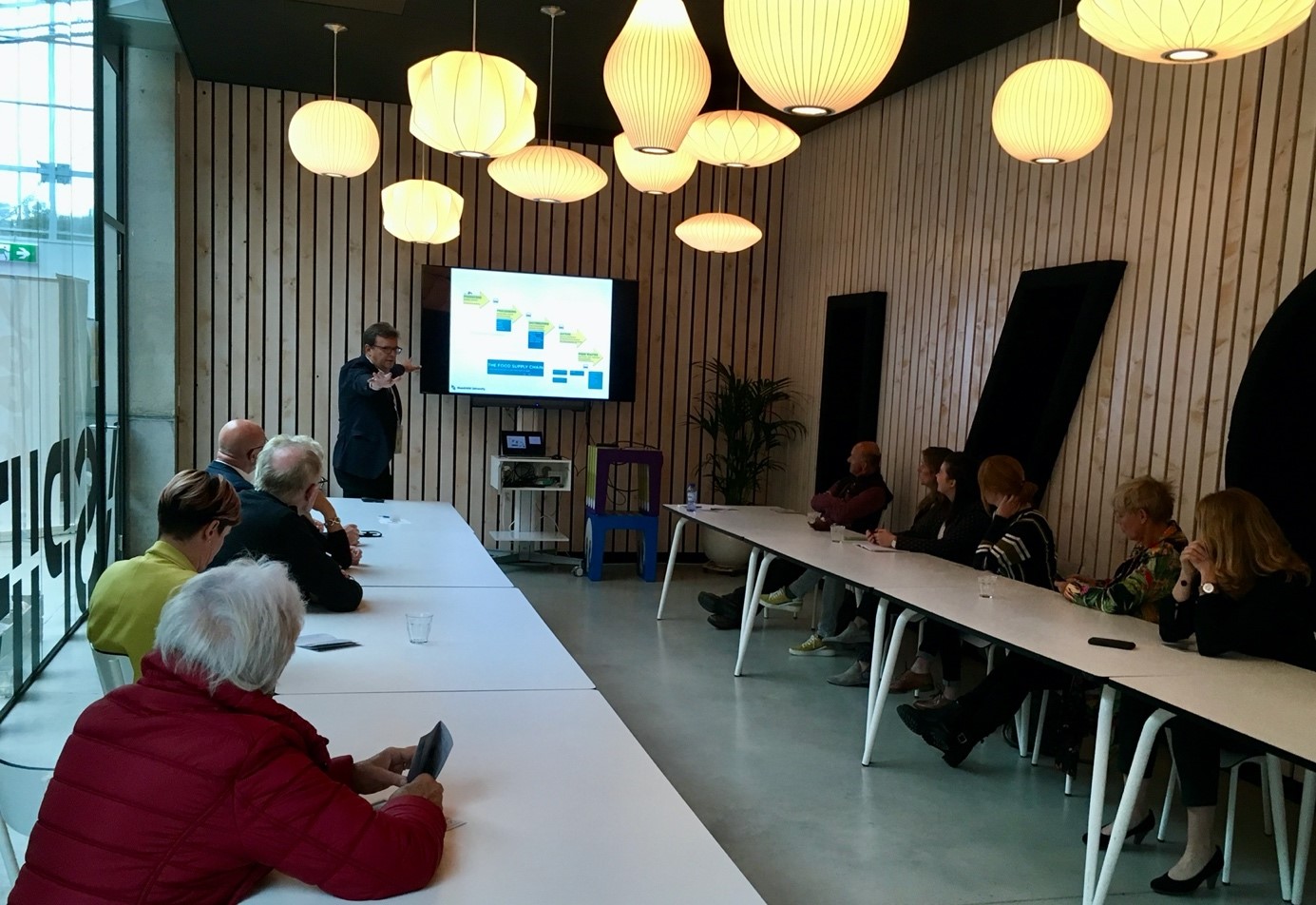BISCI workshop during Dutch Food Week
During the Dutch Food Week (4—16 October), Brightland’s Campus Greenport in Venlo is dedicated to healthy and safe nutrition, future farming and bio-circular economy. An important challenge related to these topics is how to improve the sustainability of food chains, which is one of BISCI's scientific director Bart Vos's areas of expertise. On Friday, 4 October, Vos hosted an interactive workshop to share this expertise titled ‘Sustainable food, how does it get on our plate?’ at BISCI’s home turf, the Villa Flora in Venlo.

While the focus of the Dutch Food Week is mainly on what we eat, Vos's workshop addressed how we get food to where it is consumed. By making use of well-known companies such as MacDonald’s and Mars, Vos provided the workshop’s participants with hands-on examples of challenges linked to shaping efficient food supply chains. The main focus of his story was related to sustainability rather than efficiency: ‘Do you have any idea how many kilograms of food the average person wastes per year?’ Vos asked his audience. ‘About 34.3; however, this equates to only an estimated 25% to 30% of the waste within the full food chain! There is enormous potential in making our food chains more sustainable through reducing waste.’
Vos encouraged his audience to brainstorm about possible ideas to reduce waste in the food chain. Technological innovations, more locally-oriented chains, improved collaboration and coordination, and influencing the behavior of consumers were listed as promising solutions in this co-creation effort. BISCI looks forward to expanding collaborations at Brightland’s Campus Greenport in order to investigate the feasibility of these initiatives to make our food chains more sustainable.

The Brightlands Institute for Supply Chain Innovation (BISCI) develops smart and sustainable innovations in supply chain management. Set up by Maastricht University and the Province of Limburg in early 2019, BISCI seeks to apply the latest results of logistics research to address the challenges of service providers in the region and beyond.
Also read
-
Billions of dollars in foreign aid could be spent more effectively if international poverty statistics weren’t so inaccurate. Says Dr Michail Moatsos, Assistant Professor at Maastricht University School of Business and Economics.
-
DATASET researchers from Maastricht University (BISCI) and Fontys applied the Digital Readiness Scan developed by Logistiek Digitaal to several regional logistics service providers, scientifically validated the underlying methodology, and analyzed the strengths and weaknesses of this tool.
-
Anecdotal evidence imply that what ones sees in a sausage factory cannot be unseen, and such an experience somehow takes away something from the joy that stems out of the carefree consumption of such delicacies. In this blog entry about the international poverty line’s maladies, I don’t want to ask...


